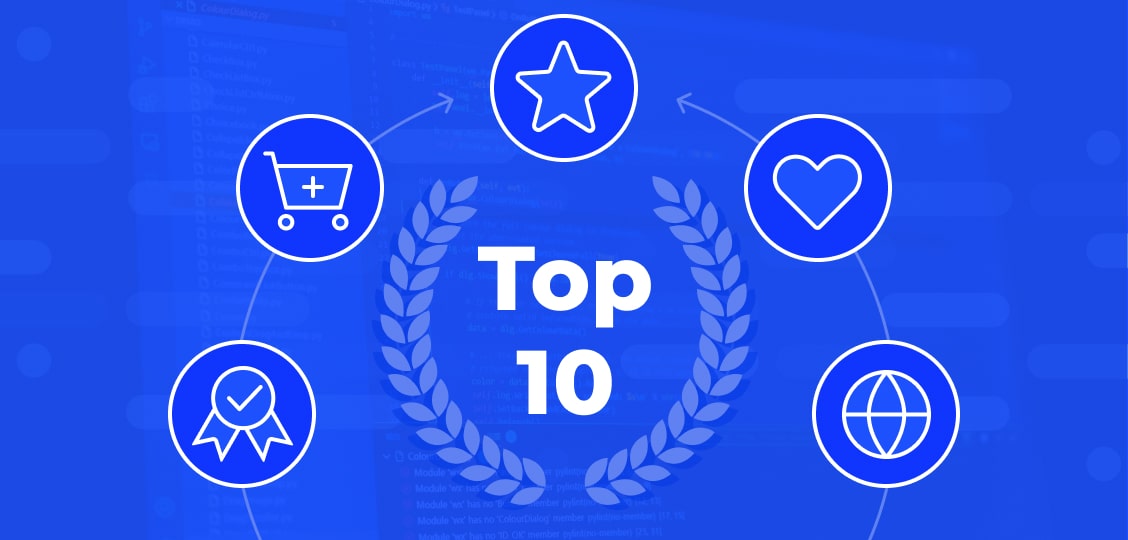How to attract customers to an online marketplace and increase the conversion rate
Find out the top 11 strategies to attract customers, improve user experience, and increase profit generated through a marketplace platform.

The popularity of digital marketplace platforms has seen significant growth over the past years, involving sectors such as e-commerce, online fashion, ridesharing, healthcare, and food delivery. Thanks to reduced travel expenses and increased safety, the majority of consumers prefer ordering goods and services via the Internet. In this regard, marketplace investment offers huge opportunities to win the audience and generate profit.
This article considers the main online marketplace niches in 2021–2022s. Our experts also describe the current landscape of marketplace fundraising.
According to Definanzas, global venture capital (VC) investment into marketplace apps and websites hit a new record high in the first quarter of 2021. The research found that VC funding surged almost threefold from $9.9 billion in Q1 2020 to $28 billion in Q1 2021.
Dealroom.co informs that the value of public and private marketplace platforms jumped by 70% since January 2020—from $2.9 to $5 trillion—outpacing the Nasdaq and the MSCI World Index. The COVID-19 pandemic and widespread adoption of innovation are the key market drivers. Aiming to ensure business continuity and gain a competitive advantage, companies across different industries are digitizing their operations.
Investing in online marketplaces is seeing rapid growth (Source: Dealroom.co)
Online fashion, food delivery, and digital healthcare have witnessed the most considerable valuation growth during the outbreak, rising by 142%, 132%, and 120% respectively. The majority of marketplace investments in the first three months of 2021 focused on logistics and last-mile delivery services. Additionally, e-learning and recruitment initiatives continue gathering pace in the wake of changing customer habits.
Investment in online marketplaces during Q2 was also high, with $12 billion of VC funding within the first five weeks of the quarter, involving capital raised by Travelperk ($160 million), Kry ($312 million), and BlaBlaCar ($115 million). It is noteworthy that 25% of all unicorns are marketplaces, as reported by Dealroom.co.
Since January 2020, 81 marketplace startups have joined the list of billion-dollar companies, with 20 unicorns in the US. Experts at Dealroom.co predict that marketplace investment will soar from $59 billion to $132 billion in 2021, increasing by more than 50%.
Marketplace unicorns globally (Source: Dealroom.co)
However, sectors like property, travel, and mobility suffered the most in the wake of the COVID-19 crisis, with share prices reduced by 40% between January and May 2020. Nevertheless, marketplace startups across these verticals managed to successfully end the year with valuations accounting for 60%, 52%, and 32% respectively.
We are seeing increased investor interest in marketplaces because they have demonstrated how they are particularly resilient to economic developments and easier to scale upwards and downwards than traditional, more asset-heavy companies.
Let’s take a look at the most popular online marketplace niches that introduce huge opportunities for investment.
The demand for online fashion marketplaces has significantly increased during coronavirus. Coming up with lockdowns and social distancing, the COVID-19 outbreak forced people to stay at home and purchase goods using their tech devices. However, the pandemic has just accelerated this shift, as online shopping provides access to a variety of goods from numerous vendors without the need to visit physical stores and spend time on travel from home.
The worldwide apparel market is anticipated to rise from $1.5 trillion in 2020 to nearly $2.25 trillion by 2025, according to Statista. The survey by Croud showed that 59.6% of customers globally are going to buy clothes and shoes via the Internet more in the next six months, especially in the US (65%).
Analysts at Croud revealed that the primary reasons for online shopping are the choice from a wider range of products (23%), discounts (22%), and time savings (17%). Therefore, today there are more opportunities for marketplace startups to drive traffic, win the audience, and raise the conversion rate.
Online luxury fashion marketplaces have seen remarkable growth, demonstrating resilience during the outbreak. For instance, the Gross Merchandise Value (GMV) of Farfetch has recently exceeded $1 billion, increasing by 40% year-over-year and more than doubled in comparison with Q2 2019. In its “Second Quarter 2021 Results”, the company reported a revenue increase of 43% y-o-y to $523 million.
E-commerce is the industry that offers great opportunities for investing in online marketplaces. Digital Commerce 360 informs that the e-commerce market soared by 21.9%, from $335.15 billion in the first half of 2020 to $408.51 billion in 2021. Analysts found that e-commerce spiked by almost five times in Q2 2020—reaching a record 43.7% growth year-over-year.
In the US, e-commerce sales spiked by 9.3% in the second quarter of 2021, accounting for $211.70 billion. It is noteworthy that 92% of US online customers purchased goods on digital marketplace platforms in 2020.
The business-to-business (B2B) marketplace segment is also witnessing rapid growth. Influenced by the COVID-19 pandemic, organizations had to temporarily close their physical stores and start delivering services via the Internet.
Striving to adjust to new circumstances, many companies registered on B2B e-commerce marketplaces, which allowed them to reduce marketing expenses, facilitate supplier management, and improve consumer satisfaction. Insider Intelligence estimates that sales generated via B2B e-commerce websites will value at virtually $1.5 billion in 2021, rising by12.2% from the previous year.
Mobile e-commerce is experiencing a surge, too. Insider Intelligence predicts that m-commerce volume will amount to $488 billion in sales—or 44% of transactions—progressing at a compound annual growth rate (CAGR) of 25.5% until 2024.
In addition, AppsFlyer reports that installs of mobile shopping applications between January and July jumped by 48% worldwide, with a 55% spike on Android devices and a 32% increase on iOS. Thus, now is the perfect time to invest in e-commerce marketplace development.
Online food delivery services are among the most popular marketplace niches in 2021 and are expected to be in 2022. Changing consumer preferences, increased penetration of smartphones, and lockdowns imposed by governments during coronavirus gave an enormous boost to the sector. Lies ahead, this trend is poised to continue to prevail in the dining environment.
According to PR Newswire, the world’s online food delivery market is projected to increase from $115.07 billion in 2020 to $192.16 billion in 2025, registering a CAGR of 11%. Bloomberg Second Measure informs that 50% of US customers ordered delivery menus in September 2021, up from 44% from the previous year.
The average sales per consumer at Doordash were 114% higher in Q3 2021 compared with the same time period of 2019. The sales volume per customer at Uber Eats, Postmates, and Grubhub also surged between 2019–2021.
Increase in average sales per customer at top food delivery marketplaces (Source: Bloomberg Second Measure)
Since the industry has high potential, investing in online foodservice marketplaces is growing. For instance, Rebel Foods, an Indian marketplace startup, hit a $1.4 billion valuation after attracting $175 million in a Series F round that took place in October 2021. Operating a network of more than 45 kitchens across 10 countries, the company obtained a unicorn status with funding from Qatar Investment Authority.
Based in Finland, Wolt, an online food delivery marketplace, raised $530 million on January 25, 2021. Furthermore, Wolt tripled its revenue to $330 million against a net loss of just $38 million.
The popularity of online healthcare marketplaces has seen considerable growth during the COVID-19 outbreak. The demand for video/audio consultations and appointment bookings has significantly soared alongside the number of medical experts who started delivering services remotely.
Thanks to this, many people can receive the required care without the need to visit hospitals, this way saving costs on travel from home to the hospital. Statista informs that revenue in the virtual doctor consultation segment is forecasted to reach over $25.11 million in 2022 and more than $33.13 million in 2025. In this regard, marketplace investment in this field is increasing.
Ride-hailing is among the most lucrative online marketplace niches in 2021 and beyond. The survey by Cox Automotive showed that 55% of Gen Z participants said that, although transportation is necessary, owning a car is not important. What’s more, 45% of millennials, 34% of Gen X, and 28% of boomers agreed with this statement. As a result, the demand for ridesharing services is growing.
The global ride-hailing market size is predicted to surge from $85.8 billion in 2021 to $185.1 billion in 2026, rising at a CAGR of 16.6%, according to Research and Markets. While COVID-19 hurt the industry, analysts anticipate that the ridesharing sector would start its complete recovery from Q3 2021 or the early beginning of 2022. Experts say that urbanization will be the key market driver.
Hence, mobility service providers can increase profit. Uber is projected to surpass $35 billion in transportation network sales by the end of 2023, up from $14.15 billion last year. As a comparison, Lyft earned $7.56 billion in 2020.
Increase in ride-hailing sales (Source: eMarketer)
The online recruitment industry has experienced a significant increase in the wake of the coronavirus pandemic. In order to automate processes such as candidate search, interviewing, and onboarding, companies are actively investing in online marketplace development. The growing use of tech devices, social media, and job boards are additional factors that drive the market growth.
Technavio forecasts that the US online recruitment market will rise by $2.99 billion during 2021–2025, progressing at a CAGR of almost 7%. Therefore, launching an online marketplace startup has a promising outlook for raising capital and generating profit.
Considering true-life examples, Remote, an e-marketplace platform that connects employers with contractors, was able to attract $196 million over three rounds. The latest funding accounted for $150 million and took place on Jul 13, 2021. RecruitingHub.com is another app that helps HR managers find the best talent. To date, this online marketplace startup has fundraised £200,000 in the Seed round.
Representing crypto assets, non-fungible tokens (NFTs) are intangible, non-interchangeable items (i.e., photos, images, 3D models, songs, videos) stored on the blockchain decentralized digital database. With an NFT marketplace, customers buy units at a fixed rate or at an auction. Initially launched in 2014, NFTs are experiencing rapid growth.
According to Reuters, the NFT token market soared in Q2 of 2021, with sales amounting to $2.5 billion, up from just $13.7 million in the first half of 2020. Influencer Marketing Hub reports that NFT sales generally account for between $10–$20 million per week. However, during some weeks last year, NFT sales valued at more than $170 million.
There are many stories when people spent a vast amount of money on tokens. For instance, the first tweet of Jack Dorsey's was sold for $2.9 million while a decade-old "Nyan Cat" GIF went for around $600,000 in a virtual auction.
OpenSea, the world’s largest online NFT marketplace for digital collectibles, generated over $3 billion in trading volume last year. To date, the startup managed to attract $427.2 million. In the latest funding round on January 4, 2022, OpenSea raised $300 million.
Investing in online marketplaces offers excellent opportunities to gain momentum and earn an income. Whilst the COVID-19 outbreak has highlighted the value of marketplace apps, their considerable increase is still to come.
Aiming to attract customers, digitize business processes, and boost sales, vendors are joining marketplace platforms across a variety of sectors. Consumers, in their turn, appreciate time savings, convenience, as well as the possibility to check out reviews and ratings.
If you want to launch an online marketplace startup, contact our team. Our software experts will get back to you within 1 working day and help address all issues. Project consultation is free of charge.

Find out the top 11 strategies to attract customers, improve user experience, and increase profit generated through a marketplace platform.

Check out the list of the top 10 marketplace software development companies, including hourly rates, location, specialty, delivered marketplace projects, and other details.
Now, you will receive a fresh newsletter from us.
Get the latest scoop on software application tips, announcements, and updates from us. Subscribe to our newsletter!